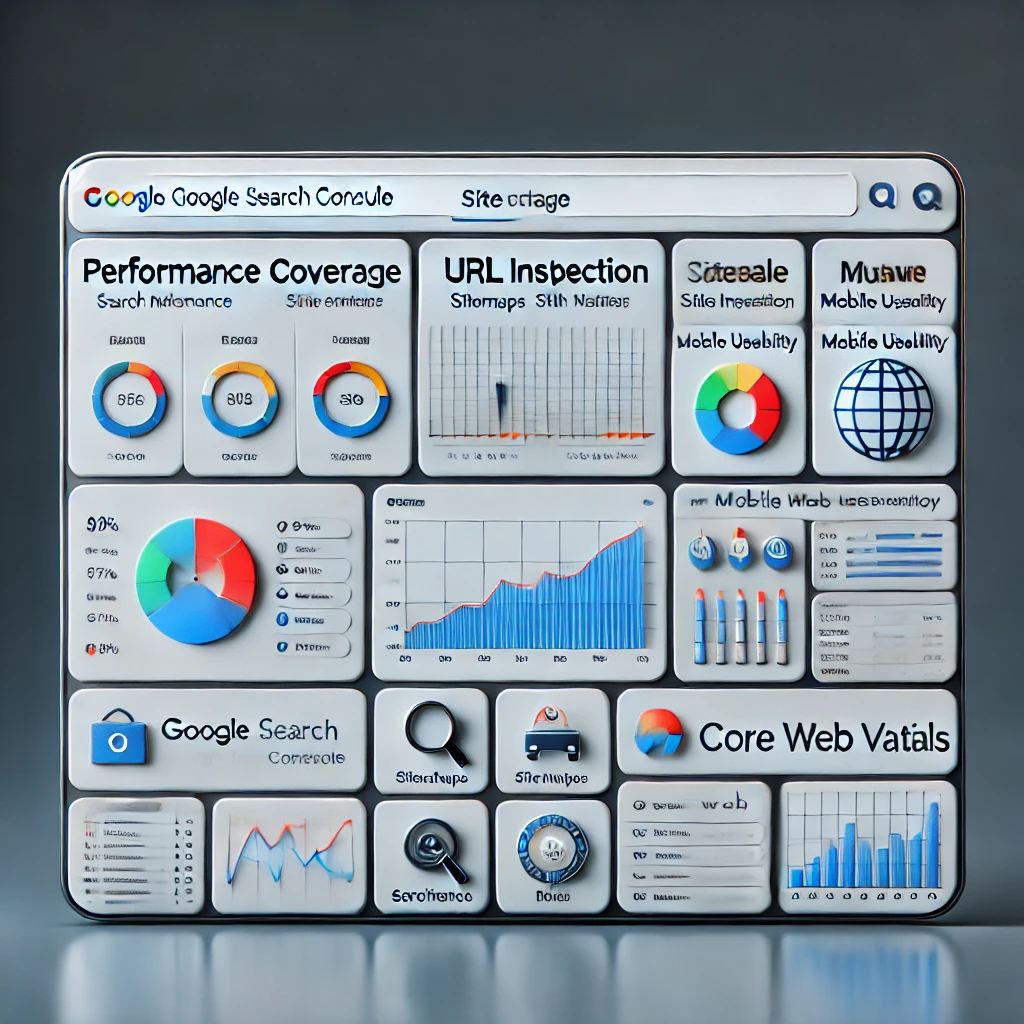Google Search Ads are an essential part of any digital marketing strategy. They allow businesses to connect with potential customers who are actively searching for products or services online. In this guide, we’ll break down the fundamentals of Google Search Ads, including how they work, setting up campaigns, optimizing for success, and best practices.
What Are Google Search Ads?
Google Search Ads are a type of paid advertising that appears at the top or bottom of Google’s search engine results pages (SERPs). These ads are marked with a small “Ad” label and are triggered by specific keywords entered by users in the search bar.
Key features include:
- Pay-Per-Click (PPC) Model: Advertisers pay only when someone clicks on their ad.
- Highly Targeted: Ads are shown to users based on keywords, location, language, device, and other factors.
- Instant Visibility: Unlike organic SEO efforts, Google Search Ads provide immediate exposure.
Why Use Google Search Ads?
Google Search Ads offer several advantages for businesses:
- Reach a Targeted Audience: Ads appear only to users who are actively searching for related terms.
- Control Over Budget: You can set daily and monthly limits to manage ad spend.
- Measurable Results: Tools like Google Ads Manager provide insights into impressions, clicks, conversions, and ROI.
- Boost Brand Awareness: Even if users don’t click, appearing in search results helps build recognition.
How Google Search Ads Work
Google uses an auction system to determine which ads appear for a given search query. Here’s how it works:
- Keyword Targeting: Advertisers choose keywords they want their ads to show for.
- Ad Auction: When a user searches for a keyword, Google runs an auction to decide which ads appear and in what order.
- Ad Rank Calculation: Ad Rank is determined by:
- Bid Amount: The maximum you’re willing to pay per click.
- Quality Score: A metric based on ad relevance, expected click-through rate (CTR), and landing page experience.
- Ad Extensions: Additional information, like site links or call buttons, can improve your Ad Rank.
- Cost-Per-Click (CPC): The actual cost per click is often lower than your maximum bid, as it’s influenced by competitor bids and quality scores.
Setting Up Your First Google Search Ad Campaign
Follow these steps to create a successful campaign:
Step 1: Define Your Goals
- Decide whether you want to drive traffic, generate leads, increase sales, or boost brand awareness.
Step 2: Choose Your Campaign Type
- For search ads, select the “Search Network” campaign type in Google Ads.
Step 3: Conduct Keyword Research
- Use tools like Google Keyword Planner to find relevant keywords with high search volume and low competition.
- Group keywords into themes for better ad targeting.
Step 4: Set Your Budget and Bidding Strategy
- Decide on a daily budget.
- Choose a bidding strategy, such as:
- Manual CPC: Control bids for individual keywords.
- Enhanced CPC: Adjust bids automatically based on conversion likelihood.
- Maximize Clicks or Conversions: Let Google optimize your bids.
Step 5: Write Compelling Ad Copy
- Headline: Grab attention with a clear, benefit-driven message (e.g., “Affordable Web Hosting – Sign Up Today!”).
- Description: Highlight key features, benefits, or offers (e.g., “Fast, reliable, and 24/7 support. Plans starting at $5/month.”).
- Display URL: Ensure it’s relevant and easy to read.
Step 6: Create Landing Pages
- Your landing page should match the ad’s intent and provide a seamless user experience.
- Include clear calls-to-action (CTAs) and ensure mobile responsiveness.
Step 7: Launch Your Campaign
- Double-check all settings, keywords, and ad copy before going live.
- Monitor performance closely in the first few days to make adjustments as needed.
Optimizing Google Search Ads for Success
To get the best results, continually optimize your campaigns:
A. Monitor Key Metrics
- CTR (Click-Through Rate): Measures ad effectiveness; aim for 2% or higher.
- Conversion Rate: Tracks how many clicks turn into desired actions.
- Quality Score: Higher scores lead to lower CPC and better ad placements.
B. A/B Testing
- Test different headlines, descriptions, and CTAs to find the most effective combinations.
- Experiment with various ad extensions like sitelinks, callouts, or location extensions.
C. Refine Keywords
- Regularly review your keyword performance.
- Add negative keywords to exclude irrelevant traffic.
- Adjust bids for high-performing keywords to maximize visibility.
D. Improve Landing Pages
- Ensure pages load quickly (under 3 seconds).
- Align content with the ad message.
- Include trust signals like reviews, certifications, or guarantees.
Common Mistakes to Avoid
- Broad Keyword Targeting: Avoid overly generic keywords that drain your budget.
- Ignoring Negative Keywords: This leads to wasted spend on irrelevant searches.
- Poor Ad Copy: Vague or unappealing copy reduces CTR.
- Neglecting Mobile Users: Ensure ads and landing pages are mobile-friendly.
- Setting and Forgetting: Regular monitoring and optimization are crucial for success.
Best Practices for Google Search Ads
- Use Ad Extensions: Enhance visibility and provide more information.
- Leverage Smart Bidding: Automate bid adjustments for better results.
- Focus on Local Targeting: If applicable, target specific regions or cities.
- Track Conversions: Use tools like Google Analytics to measure ROI accurately.
- Stay Updated: Google frequently updates its ad policies and features—keep learning to stay competitive.
Tools to Help You Succeed
- Google Keyword Planner: For keyword research and insights.
- Google Analytics: To track user behavior and campaign performance.
- SEMrush or Ahrefs: For competitor analysis and keyword ideas.
- Unbounce or Instapage: To create high-converting landing pages.
- Ad Preview Tool: To view how your ads appear in search results.
Conclusion
Google Search Ads are a powerful way to reach potential customers and grow your business. By understanding the basics, setting up targeted campaigns, and optimizing continuously, you can achieve impressive results. Whether you’re a small business owner or a seasoned marketer, mastering Google Search Ads is a valuable skill that can drive significant growth.












